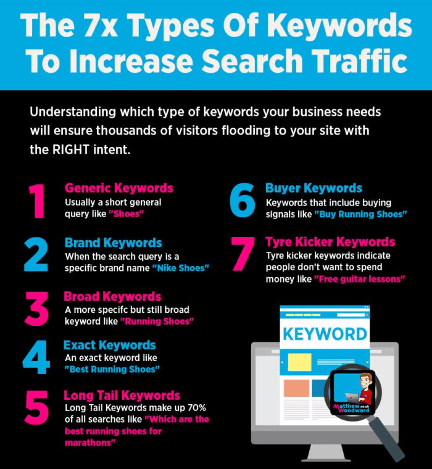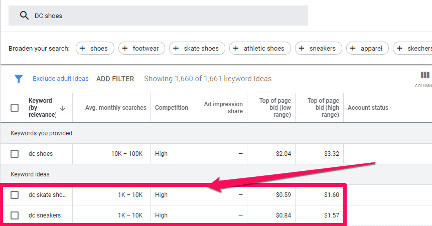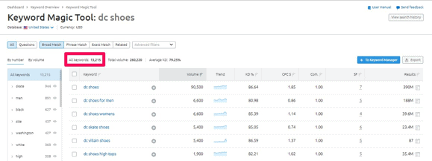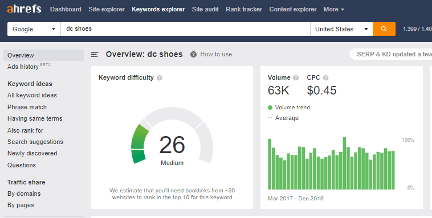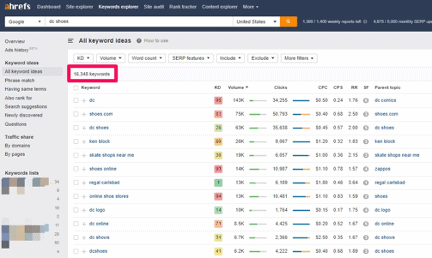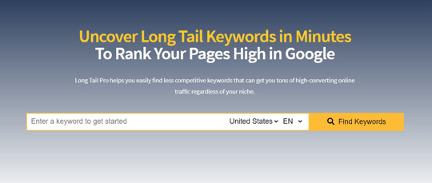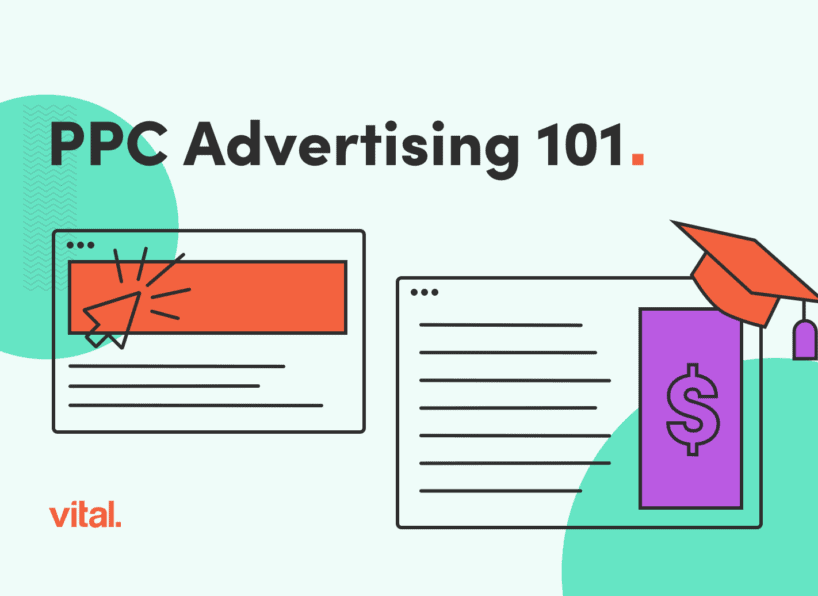Choosing the right keywords for your website or marketing strategy is vital. The right keywords can attract relevant traffic that will convert, but the wrong ones can lead to wasted time and resources. Finding the right keyword research tools will help make this process faster, more efficient, and more effective.
Effective keyword research relies on four factors:
- Intent – The keyword needs to attract the right people to the page
- Search Volume – People need to be searching for the term
- Relevance – The keyword needs to be related to the content/product
- Competition – Can you realistically compete for this keyword (keyword difficulty)?
Keyword research tools are the easiest way to uncover all of this information.
This article covers the best free and paid keyword research tools. We guarantee there’s a solution for each business’ budget. So, let’s get started.
What Are Keyword Research Tools?
Keyword research tools let users see the hidden data behind a chosen keyword. But some of them do far more than that.
Tools like Ahrefs and Moz can bring up thousands of related keyword suggestions, which makes it super easy to find the golden keyword.
Keyword research tools usually show five metrics that can be used to create a perfect research strategy:
- Keyword difficulty
- Cost per click
- Related keywords
- Monthly search traffic
- Sites ranking for that keyword
Using this information wisely allows site owners to make smarter decisions about how they generate traffic and revenue.
Finding the best keywords is a great way to increase the site’s overall organic search traffic. But to find the best keywords, first you need to understand the different types.
Types of Keywords You Should be Targeting
There are many types of keywords that need to be understood before conducting any research. Each type brings a different intent, which means they produce different results. Let’s break them down:
Exact Keywords
People searching with exact keywords usually know precisely what they are looking for. The best thing about exact keywords is that they generally have a high volume of search traffic ready to convert. Unfortunately, they usually have a lot of competition, which makes it harder for smaller sites to rank for them.
Here are a few examples of exact keywords:
- Best skate shoes
- iPhone 11 case
- Dumbbell set reviews
These terms can be used for either commercial or informational content, but they will be harder to rank for.
Brand Keywords
Brand keywords are easy to recognize because they relate directly to a brand. Some examples are:
- Nike Air Max
- DC comics
- Delta flights
Now, these keywords show some sort of intent toward a product, but the end goal is unclear. This style is also tricky to compete for because the direct competition will be the brand’s actual website.
Generic Keywords
This is one of the worst types of keywords because it very broadly mentions a topic.
At this point, the person searching for the term doesn’t know what they want to learn, which is one reason to avoid generic keywords, but there are three more:
- Conversions are low compared to time invested in building rankings
- Everyone is competing for them
- No keyword intent
Generic keywords tend to have a lot of search traffic, but competing for them and getting a conversion is time consuming and expensive.
Tire Kicker Keywords
People searching for these terms are usually a waste of time, but not always (keep reading to find out why).
The majority of these searches are people looking for something for free, like these:
- Free keyword checker
- Download eBooks
- Free courses
As mentioned earlier, these keywords aren’t great if you are trying to sell a product. But if you have a different business plan, they can actually be effective. For example, if you are trying to collect thousands of email subscribers, you can use tire kicker keywords as part of your strategy.
Buyer Keywords
These are great keywords to look for because the searcher is already aiming to buy the product. They’re also straightforward to identify; it’s about what’s written before or after the seed keyword. Check these out:
- Cheap DC Shoes
- DC Shoes discount
- Buy DC Shoes
Looking at these keywords, it’s clear the searcher is looking to buy a pair of DC Shoes, and by the looks of it, they want a bargain.
Long-Tail Keywords
Long-tail keywords make up the vast majority of searches, but they have the lowest competition.
Unfortunately, they also tend to have the lowest search volume, but that doesn’t mean you should discount them. Using these keywords usually result in a better conversion rate since the searcher knows exactly what they’re looking for
Due to the low competition, they’re also easier to rank for. Sometimes leveraging a lot of these smaller, focused opportunities leads to the most significant results.
Here are some long-tail keywords to take a look at:
- Which commercial car is best for the Neuberg ring
- Best skate shoes for street skating
- How to make money as a climber
People have the most success with long-tail keywords because they hit the sweet spot between traffic and competition. Most importantly, the conversion rate is huge.
In general, website owners should be identifying long-tail keywords; they bring the most bang for the buck.
Keyword Research Tools
There are loads of keyword research tools available on the market, which makes it hard to determine the best fit That’s why we’ve rounded up these top free and paid keyword research tools:
Free Tools
Starting a new site costs money, and not everyone has the budget to spend $100 per month to find keywords.
If this is the case, there are a couple of free options for researching keywords:
Google Keyword Planner
With Google Keyword Planner, you can get quick ideas and use the data to make some pretty good guesstimates for the best keywords to use.
I say ‘guesstimates’ because that data tends to work more on estimates rather than exact figures. But this can still be used to your advantage and put you in the right ballpark for your keywords.
Pros
- Search three keywords at a time
- Check the data from three years ago
- Filter out low search volume words
- View keywords based on location
Cons
- Offers limited suggestions
- Reduced filtering
- No more related terms
- Limited metrics
Moz Keyword Planner
The Moz Keyword Planner is entirely free to use with a community account. The free account only grants you ten keyword queries a month, but if you are just getting started, then that’s more than enough.
But here’s the thing. With each query, the keyword planner returns thousands of keyword suggestions. More importantly, Moz pulls out the necessary metrics to correctly analyze each keyword.
This includes detailed monthly search volume and the competition of the keyword. With that insight, you have more opportunities to find keywords that work.
Pros
- Shows valuable data points
- Keyword rank tracking
- Great SERP features
- Keyword expansion
Cons
- One keyword at a time
- Only ten queries per month
- Error tracking is misleading
- Limited metrics
So, essentially you can use a premium tool for FREE.
The Problem With Free Tools
Free tools are a great starting place, but they do come with considerable problems. Now, we’re going to talk about some of the shortcomings with free keyword research tools.
When it comes down to it, they have three main problems. And any of the following problems could break an SEO campaign:
Keywords Are Phrased Strangely – Most of the time, people search for things using broken sentences, which can be an issue when there are thousands of queries that could be relevant.Since free tools limit the number of results they return, it’s challenging to find the golden long-tail keywords.
Time – Free tools often require multiple searches to find good results. Since they make people jump through hoops, it can cost valuable time to find reliable results.
Limited Information – To build a decent keyword strategy, it’s important to have as much information about the keyword as possible. Unfortunately, free planners offer minimal and selective information.
So, unless you can take advantage of free trials or free versions of the premium tools (as mentioned earlier with Moz), it might be time to consider investing in a paid tool to better leverage data and identify the best keywords.
Paid Tools
Using premium tools will spend more of the company budget, but they’ll also get better results much faster.
Paid tools perform a more in-depth review of each keyword, but more importantly, they generate thousands of suggestions. The best part? Paid tools perform these searches in seconds, which saves you valuable time. So, let’s talk about some awesome paid tools
SEMRush
This has been one of the most popular SEO tools for quite some time now. Their Keyword Magic tool can be used to find thousands of keywords with all the metrics you need to filter and pinpoint the best ones.
SEMRush allows users to create a detailed plan in seconds, and all the data can be exported into a spreadsheet and analyzed later.
Pros
- Huge keyword database
- Intelligent suggestions
- Full range of metrics
- Offers variations
- Shows CPC price
Cons
- Starts at $99 per month
- Discrepancies about search/traffic volume
Ahrefs
This is the best all-round tool an SEO can have in their arsenal. Ahrefs can perform high-quality keyword research, and its backlink checker is where it’s at. But we aren’t here for backlinks.
The keyword tool can be used to quickly turn ten keywords into thousands.
Here’s a detailed overview of a keyword:
Then, you can go one step further by looking for additional keyword ideas that you can filter and analyze either in Ahrefs or in an exported excel sheet.
Ahrefs displays all the metrics needed to complete the keyword planning phase. But it also features a Global Volume section, which shows how many searches are made per country.
Pros
- User-friendly
- Provides valuable metrics
- Loads of keyword variations
- Shows global search volume
- Large database
Cons
- Starts at $99 per month
- Harder to use interface compared to SEMRush
LongTail Pro
This keyword research tool primarily focuses on finding low competition with high traffic, and if the name wasn’t a giveaway, it predominantly focuses on finding long-tail keywords. Each of these long-tail keywords provide valuable audience insight that can guide your content strategy.
Since LongTail Pro solely focuses on finding keywords, it makes this tool cheaper than Ahrefs or SEMRush.
LongTail Pro is awesome because it finds profitable keywords and produces content ideas along the way.
Pros
- Provides lots of related searches
- Shows valuable metrics
- Very easy to use
- Accurate rank tracker
- More affordable
Cons
- Not a complete SEO tool
- Capped seed keywords
Keywords Everywhere
The great thing about this tool is not having to use a product’s site page. Keywords Everywhere is a Google Chrome and Firefox extension.
The extension shows several metrics on the competitor’s page, including what keyword they use, the density of the keyword, and the competition for the keyword.
Keywords Everywhere can also be used in Google searches to find related keywords, and it’ll deliver all the metrics you need.
Pros
- Easy to use
- Export results quickly
- Provides related terms
- Detailed metrics
Cons
- No location details
- No longer free
Wrapping Up
Keyword research is a critical component of a successful website. Knowing what to look for and having the right tools for the job will put you ahead of your competition.
There are several tools out there for keyword research, but investing in the right one gives your pages a huge opportunity to reach the top search result spots.
SEO tools are a great way to give your keywords the best chance and help you achieve great results for link building, site auditing, and much more.

